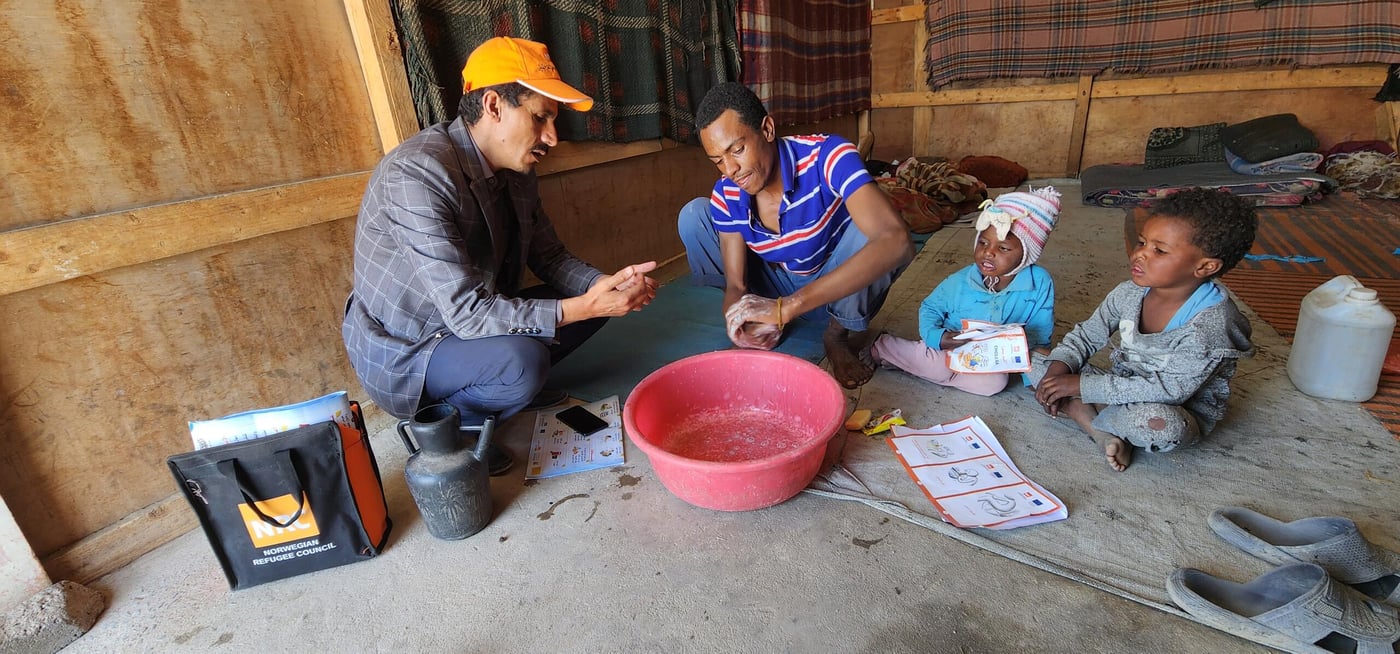In such locations, cholera, a potentially fatal disease, poses a significant threat. Lack of access to clean water, proper latrines and health education all contribute to the spread of this disease.
As of October, the Yemen WASH Cluster reported that there have been 190,518 suspected cases of acute watery diarrhoea and cholera this year. [1]
The Norwegian Refugee Council (NRC), a member of the Yemen Displacement Response (YDR) Consortium, funded by the European Union (EU) through its Humanitarian Aid Operations, provides essential toolsto support displaced families living in collective shelters to protect themselves from cholera.
Shawqi and his family are displaced due to the ongoing conflict in Yemen. He is the father of six children. He fled his village with his family eight years ago and started a new life from scratch in Al-Rajihi camp. The lack of proper latrines is one of their main challenges in the camp. He said that due to the lack of latrines, many people had no choice but to go to the toilet outdoors, out in the open.
At night, there are increased risks of going to the toilet out in the open, as people are exposed to snakes. “Snakes are a major threat: There have been incidents of people being bitten,” Shawqi says. For women in particular this risk is higher.

In a country where cholera threatens millions, providing families with latrines is crucial for cholera prevention. So far, NRC's EU funded intervention has made a significant difference with 276 latrines being constructed and 81 being rehabilitated, with more improvements underway.
“You can’t imagine how much a latrine can improve your life. Now we can use latrines anytime, with no threats of snakes like before and less risk of diseases,” he says.
Families at Al-Rajihi camp where Shawqi lives have endured severe water shortages for years now. Another resident, Ismail, explained, “I’ve been here for four years, water has always been lacking, which leads to disease.”
NRC addressed this critical need by installing a new water point in the camp. This addition means that Ismail and the other displaced families now have adequate access to water.
Raising awareness about cholera prevention is essential, especially in camps where populations already have increased vulnerability. In Amran governorate, NRC conducted awareness sessions for over 140 displaced families in the Kharef camp. Hygiene kits were also distributed to these families, and they received essential training on cholera prevention.
“Lack of awareness was a major factor in the disease’s spread,” says Ali, a displaced person living in Kharef camp. “Now we know how to protect ourselves.”
While NRC helps displaced families in some camps in Yemen, cholera is still a threat to many displaced families, and that requires a continued response by humanitarian partners.


Sign up to our newsletter to read more stories from around the world.


